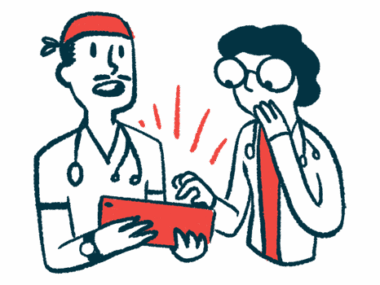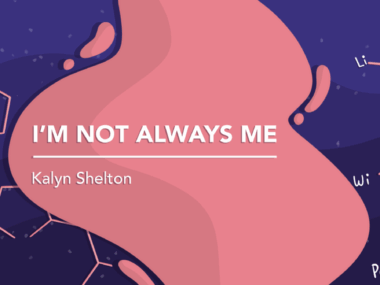Have You Thanked Your Physicians Lately?
With closer patient-doctor relationships, gratitude might be the least we can offer
Written by |

It was warm on an early December afternoon, and the sand on the Florida Panhandle beach was white and so fine it sifted through my toes like flour. I was at the shore with a friend who, like me, lives with acute hepatic porphyria (AHP). While I speak with her every week, this was only the second time we’d met in person.
As the sea breeze whipped through our hair, we discussed the trials and tribulations of physician relationships that can only be understood by someone else living with a complex rare disease.
“Having a personal email is great. That way your doctor can get an urgent message right away,” she said.
“I recently had a specialist give me her personal cellphone number to text when I am in crisis,” I responded.
A few short years ago, this thought would have seemed preposterous, presumptuous, entitled even. Now, it’s an arrangement I have with more than one doctor in my care network. I’ve worked for these relationships. I don’t take them for granted.
She nodded, unsurprised, and we continued our walk along the water, twisting our bare feet so it squeaked when we walked. We both have reasons to be wary of the medical system and have been mistreated by physicians. But there we were, sharing what we’ve learned and how far we’ve come.
Establishing healthy provider relationships
When you live with a complex disease like AHP, it’s crucial to have a point-person doctor who manages your local care and will stand up for you in sticky situations, like being questioned about your diagnosis at the emergency room. Mine is my hematologist; my friend’s is her primary care physician. Both of these relationships took trust and time to build.
I’m a needy patient. I’m not your average person living with persistent pain or chronic fatigue. AHP is a strange disease; I need a high-carb diet to stay healthy, certain medications will send my body into a tailspin, and without labs indicating an abnormality, even a severe attack can be hard to assess.
I’m incredibly fortunate to have private health insurance with wide coverage, but before living with AHP, I’d never been denied a referral to a new physician. After diagnosis, I was alarmed that specialists could so easily reject my case despite a referral from my provider. Did they not have time for something so out of the ordinary? Did they see my medical history and think I was a troublemaker or a drug seeker?
Like many with a rare disease, I have a fairly extensive network of specialists. Although I’ve been diagnosed with AHP for nearly six years, I’m still actively building my group of consulting healthcare providers.
I’ve carefully cultivated relationships with many of my doctors through regular communication over the years, by sharing new research on my disease and relying on their expertise as I openly discuss treatment options. Some of them have seen me in active attacks or in various states of recovery, when I’ve relied on mobility devices due to muscle weakness. All of these experiences over time build trust and collaboration.
A 2012 study published in Health Policy reports that rare disease patients want to be empowered when it comes to their healthcare. The authors discuss patients as experts on their diseases and how patient-directed care challenges the traditional relationship between patients and physicians.
Remembering to be grateful
That day on the beach, I stepped back and considered my relationships with various doctors. I contact my care team when I have a question or to communicate needs, or I may urgently text a specialist in an attack. But when things are good, I don’t always follow up. I don’t make time to reflect on decisions we made together and convey gratitude for their time and attention.

Claire during a recent walk on the beach, where she discussed physician relationships with a friend. (Courtesy of Claire Richmond)
Now more than ever, doctors and nurses are stretched thin due to a national workforce shortage and strains that were exacerbated by the COVID-19 pandemic. They see patients upon patients every day, and yet when I walk through the door, they take extra time to look up the safe drug list, consult with an expert, or refer to a set of labs that are completely different from any other patients’ that day.
I want specialists to take a curious, collaborative approach to my case, and I’m so grateful when that happens. But in case I get caught up with everything else life has in store for me, I’m making sure to be intentional about showing my appreciation with a message, a card, or a small gift at the end of the year.
Have you thanked your physicians lately?
Note: Porphyria News is strictly a news and information website about the disease. It does not provide medical advice, diagnosis, or treatment. This content is not intended to be a substitute for professional medical advice, diagnosis, or treatment. Always seek the advice of your physician or other qualified health provider with any questions you may have regarding a medical condition. Never disregard professional medical advice or delay in seeking it because of something you have read on this website. The opinions expressed in this column are not those of Porphyria News or its parent company, Bionews, and are intended to spark discussion about issues pertaining to porphyria.







Leave a comment
Fill in the required fields to post. Your email address will not be published.